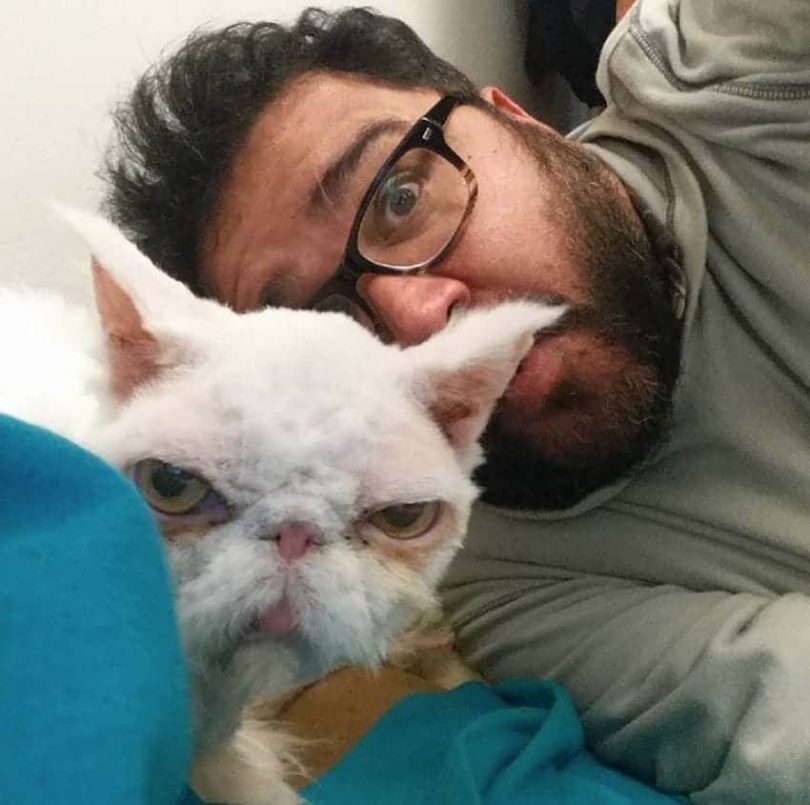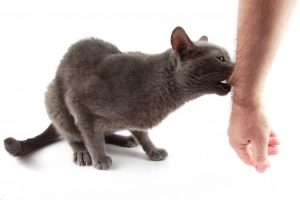The type of play you engage your kitten in is pivotal to their development and whether they manifest aggressive cat behavior or not.
When you have a new kitten and they start to open their eyes and interact with the world around them they are very lively and full of energy to explore and navigate the new place they find themselves in.
You will see this liveliness manifested as a great playfulness. Having one playful kitten may be intense, but having a ‘kindle’ or group of playful kittens may take a lot of work to keep an eye on!
How to watch out for aggressive cat behavior
When you are monitoring the aggressive cat behavior, one important thing to look out for is over-playfulness to the extent that they become aggressive.
Usually when a kitten becomes over-playful and crosses the line into aggressive territory the mother cat or any other older cats around will issue a warning.
The other kittens around any particularly over-playful kitten will also usually have something to say about the behavior. This is because they are not comfortable with it or do not want to continue where it’s going.
But, who listens to siblings! Just like in human families, kittens from the same family may not know where to draw the line with each other, and so that is usually when the mother or older cat steps in.
How do older cats discipline younger cats?
When an older cat has to step in to break up the aggressive cat behavior, they will usually paw, growl, hiss, or puff their back out, depending on the severity of warning that needs to be given.
From this, kittens will learn at a young age what is and what isn’t acceptable behavior and will likely not grow up aggressive.
Any aggressive cat behavior that is there will be most easily noticed at the age of six months.
But, it is better to keep and eye out and correct any such aggressive cat behavior beforehand. This is especially necessary if the older cat/s does not or cannot do this themselves.
The lack of discipline may be for a number of reasons, for example the mother cat may not be able to keep an eye on all the kittens all at once so in such cases you will have to oversee discipline yourself.
Using distraction as an effective form of training
If you notice a kitten or cat being aggressive with either other kittens, cats or even humans, then the best way to discourage that behavior is with either spraying them with water, use the pet corrector or by clapping your hands.
Such measures are harmless and get the message across effectively. Even a stern NO can work with the right tone. This is often how I discourage undesirable behavior with our cat and it works very well, however it took two years caring for and training a wolf dog beforehand to get it right!
So don’t be discouraged, if you can’t make a simple NO work since cats are not prone to listening and usually need to be jolted by something to forget what they are doing.
Remember the goal here isn’t punishment, but distraction. They will learn that when they try to continue this activity they will be unpleasantly distracted and that it’s not worth continuing in their eyes.
Disciplining any cat with negative or harmful behavior such as flicking, hitting, or isolating will not work and make the problem worse. You can’t change negative behavior with more negative behavior only positive.
Redirecting your cat’s aggressive instincts into play
As your kitten gets older you may be tempted to play with them with your hands. It’s a very easy thing to do, but it’s not recommended because it gives the message that it is okay for them to scratch and bite humans.
Maybe if you are a hermit and have no friends it wouldn’t be a big deal, but most people when they come into your house won’t want to be bitten when they go to pet your cat.
Your cat may only think this is playful but your guests won’t see it that way, so it is better not to enforce this kind of aggressive cat behavior.
Lastly, in order to help with your kitten’s or cat’s playful energy, get them a toy or a few to take their energy out on. They love dangling things so let them chase it for a while and then let them kill it.
This will satisfy their hunter instinct and prevent them from taking it out on any other living being.









Hayley ,
Thanks for this great post on cat behavior. I have been to friends houses before and their cat seemed a bit rough and, well overly aggressive.
I never really thought about its upbringing but I suppose that is where this type of behavior starts and if not corrected they stay a bit wild.
Thanks again and I really enjoy the rest of the site as well, my best,
Gary
Good to know. Thank you Gary